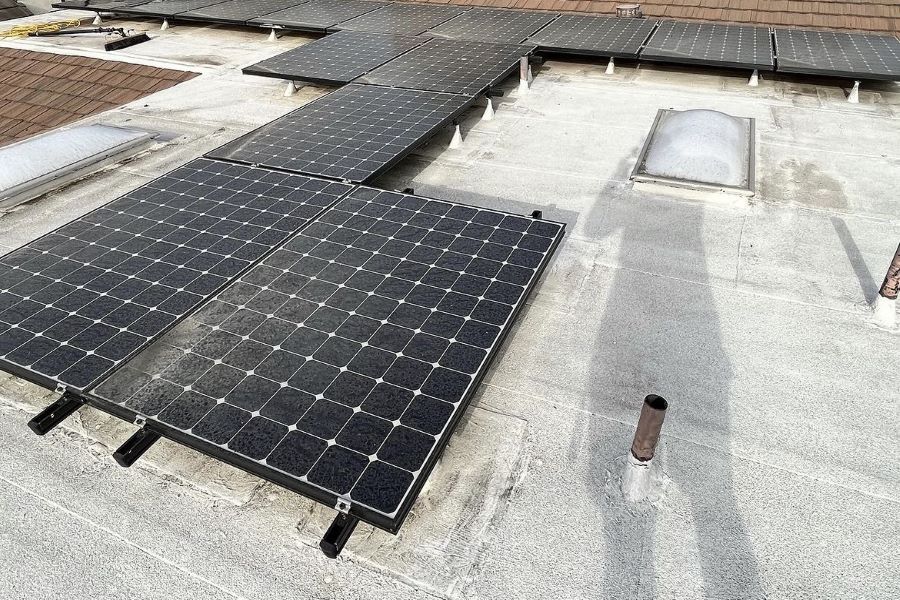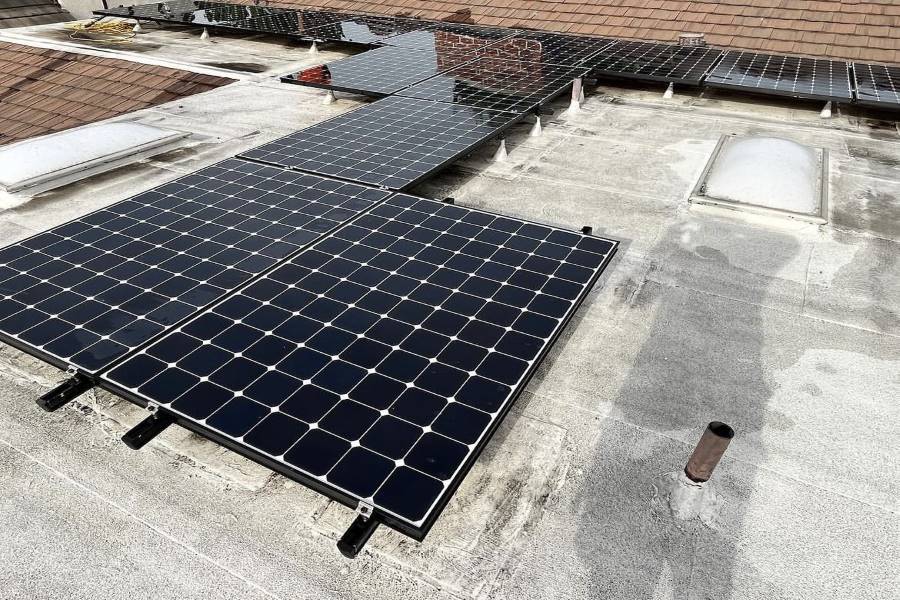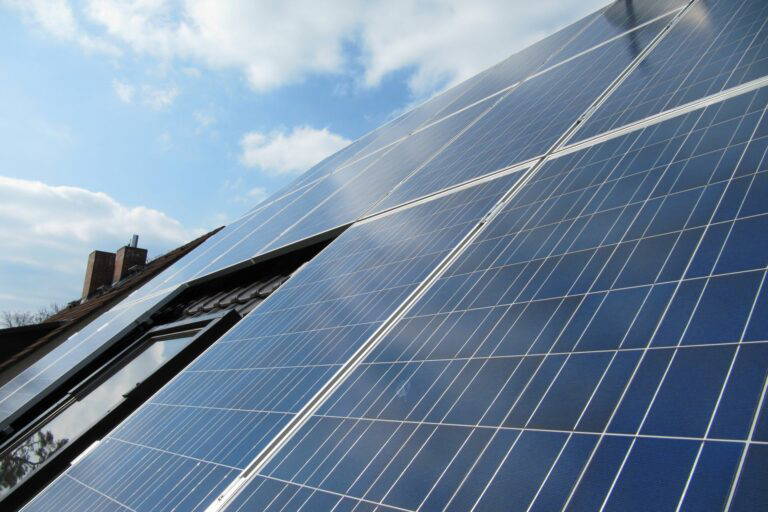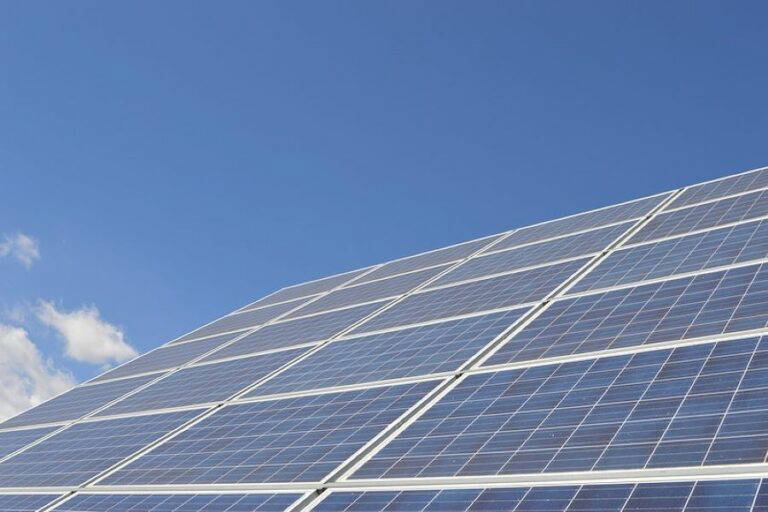17 Amazing Benefits of Clean Solar Panels
Benefits of Clean Solar Panels
Step into solar energy mastery as we unravel the paramount importance of clean solar panels. This insightful article illuminates the symbiotic relationship between panel cleanliness and robust energy output. By quantifying potential energy and financial losses arising from reduced efficiency, we underscore the compelling rationale for meticulous upkeep.
Yet, our exploration extends beyond immediate gains. Discover the pivotal role of clean solar panels in bolstering the lifespan of your solar system. This article guides you to harnessing optimal energy generation while safeguarding your investment. Join us in embracing the power of cleanliness for an enduring, efficient, and eco-conscious solar journey.
Maintaining clean solar panels plays a pivotal role in significantly extending the lifespan of your entire solar system. The relationship between clean solar panels and system longevity is more than just a superficial connection; it directly impacts the efficiency and structural integrity of the system over the long term.
What Are the Benefits Of Clean Solar Panels?
Clean solar panels offer many benefits that contribute to optimising energy production, extending the lifespan of your solar system, and maximising your return on investment. Here are several advantages to keeping your solar panels clean:
- Increased Energy Production: Clean solar panels can absorb more sunlight, generating higher energy and increasing electricity output.
- Enhanced Efficiency: Removing dirt, dust, and debris allows solar cells to operate at their peak efficiency, ensuring optimal conversion of sunlight into electricity.
- Financial Savings: Improved energy production means reduced reliance on grid electricity, lowering energy bills, and generating surplus energy for net metering or feed-in tariffs.
- Higher Return on Investment (ROI): Maximised energy generation ensures you recoup your initial investment in solar panels faster and enjoy greater financial benefits.
- Environmental Impact: Clean solar panels contribute to a more sustainable and eco-friendly energy source, reducing your carbon footprint and supporting clean energy initiatives.
- Consistent Performance: Regular cleaning helps maintain constant performance levels over time, preventing gradual degradation of energy output due to dirt build-up.
- Reduced Maintenance Costs: By preventing potential damage caused by debris accumulation, you can minimise the need for repairs or replacements, saving on maintenance expenses.
- Extended Lifespan: Clean solar panels experience less wear and tear, reducing the risk of micro cracks and other long-term damage that can shorten the lifespan of your solar system.
- Optimised Aesthetics: Clean solar panels enhance the visual appeal of your property, maintaining the sleek and modern appearance of your solar installation.
- Preservation of Warranty: Many solar panel manufacturers require regular maintenance, including cleaning, to keep warranties valid. Clean panels help ensure your warranty remains in effect.
- Better Resilience: Regular cleaning can prevent the accumulation of grime that might affect the panels’ performance during inclement weather conditions, such as rain or snow.
- Improved Energy Independence: Clean solar panels enable you to rely more on self-generated energy, reducing dependence on external energy sources and enhancing energy security.
- Optimal System Health: Removing debris minimises the risk of hotspots and micro cracks, which can compromise your solar system’s overall health and functioning.
- Effective Shading Mitigation: Cleaning or cleaning solar panels minimises shading from debris or nearby objects, preventing power loss and maintaining uniform energy production.
- Educational Opportunity: Regular panel maintenance offers an opportunity to learn more about your solar system, fostering a deeper understanding of its components and operation.
- Positive Resale Value: A well-maintained solar system with clean panels can increase the resale value of your property, attracting environmentally conscious buyers.
- Promotion of Renewable Energy: By showcasing a well-functioning, clean energy system, you contribute to promoting and adopting renewable energy in your community.
Incorporating routine cleaning into your solar panel maintenance regimen allows you to reap these multifaceted benefits, ensuring that your solar investment remains efficient, durable, and environmentally impactful for years.


Why should I consider hiring professional services for solar panel cleaning?
Opting for professional services to clean solar panels offers a range of compelling advantages that can enhance your solar energy system’s efficiency, longevity, and overall performance. Here’s why choosing professionals for solar panel cleaning is a prudent choice:
- Expertise and Experience: Professional cleaning services have trained technicians with the knowledge and experience to clean solar panels effectively without causing any damage. They are well-versed in industry best practices and understand the nuances of different panel types and configurations.
- Safety Assurance: Cleaning solar panels often requires working at heights or rooftops. Professional cleaners are equipped with the necessary safety gear, tools, and training to ensure their safety and that of your property.
- Specialised Equipment: Professionals use specialised equipment for solar panel cleanings, such as soft brushes and purified water systems. These tools are specifically tailored to minimise the risk of scratches and maximise the efficiency of the cleaning process.
- Thorough Cleaning: Professional services are equipped to provide complete and comprehensive cleaning, reaching areas that might be challenging for homeowners to access. This ensures that all dirt, debris, and contaminants are effectively removed.
- Time and Convenience: Cleaning solar panels can be time-consuming and physically demanding. Hiring professionals frees up your time and spares you the hassle, allowing you to focus on other priorities.
- Avoiding Damage: Incorrect cleaning techniques or using abrasive materials can damage the panels and void warranties. Professionals are well-versed in properly cleaning panels without compromising their performance or longevity.
- Regular Maintenance Scheduling: Many professional services offer regular maintenance schedules, taking the responsibility off your shoulders and ensuring that your panels are consistently clean and efficient.
- Detailed Inspection: Professional cleaners often include a thorough inspection as part of their service. This allows them to identify potential issues or defects in your solar panels that may need attention.
- Maximised Energy Generation: Thorough cleaning by professionals ensures that your solar panels operate at peak efficiency, translating to optimal energy generation and financial savings.
- Warranty Protection: Some solar panel manufacturers stipulate regular professional maintenance as a requirement to keep warranties valid. Hiring professionals can help you maintain warranty coverage.
- Long-Term Savings: While there is a cost associated with hiring professionals, the long-term benefits of energy savings, system longevity, and reduced risk of damage can outweigh the initial investment.
- Knowledgeable Advice: Professionals can offer valuable advice on maintaining your solar panels and optimising their performance, helping you make informed decisions for the care of your system.
Incorporating professional solar panel cleaning services can streamline your maintenance efforts, enhance the benefits of your solar energy system, and provide peace of mind that your investment is in capable hands.


How does keeping solar panels clean contribute to extending the lifespan of a solar system?
When exposed to the elements, solar panels can accumulate a layer of dirt, dust, pollen, bird droppings, and other debris. Over time, this accumulation can create a barrier that hinders the absorption of sunlight by the solar cells. This reduced light absorption translates into decreased energy production and puts additional stress on the system.
One of the critical ways in which clean solar panels contribute to a longer solar system lifespan is by mitigating these efficiency losses. Ensuring that the solar panels remain free from obstructions allows them to operate at their full potential. When panels are clean and functioning optimally, they can generate the maximum amount of electricity with less strain, which helps maintain the system’s overall health.
Furthermore, a clean solar panel surface reduces the risk of long-term damage. Debris build-up can create hotspots on the panels, leading to uneven heating and potentially causing micro cracks. If left unchecked, these micro cracks can escalate into larger cracks over time, compromising the structural integrity of the panels and leaving them vulnerable to moisture infiltration and other environmental factors.
Regularly cleaning your solar panels, help prevent these issues and safeguard the longevity of your investment. A well-maintained solar system generates more energy and is less susceptible to premature wear and tear. This, in turn, can extend the lifespan of various components, such as inverters and wiring, which are integral to the system’s overall functionality.
In essence, the role of clean solar panels in extending the lifespan of your solar system is multifaceted. It ensures optimal energy production, reduces strain on the system, prevents potential long-term damage, and promotes the overall health of your solar installation. By incorporating regular panel cleaning as part of your maintenance routine, you contribute to a more sustainable and enduring solar energy solution for your home or business.


What is the impact of clean solar panels on energy output?
The impact of maintaining clean solar panels on energy output is a topic of great significance within the realm of solar energy utilisation. The relationship between the cleanliness of solar panels and the amount of energy they generate is a direct and crucial one.
Solar panels harness sunlight and convert it into electricity through a process known as the photovoltaic effect. When sunlight strikes the surface of a solar panel, it activates the solar cells within it, causing them to release electrons and generate an electric current. However, any obstructions or impurities on the panel’s surface can hinder this process and reduce the sunlight that reaches the solar cells.
Clean solar panels, free from dust, dirt, bird droppings, or other debris, can absorb more sunlight. This means solar cells can operate at their optimum efficiency, converting a higher percentage of the sun into electricity. In contrast, dirty or soiled panels can experience reduced light absorption, leading to decreased energy production.
The consequences of neglecting panel cleanliness can be quantified regarding energy and financial losses. Studies have shown that dirty solar panels can experience efficiency losses ranging from 15% to 25%. This translates into a substantial reduction in energy output over time. Moreover, the financial implications are notable, as lower energy production means diminished returns on the initial investment in the solar system.
Regular cleaning of solar panels is essential to ensure they continue operating at their peak efficiency. By maintaining clean panels, solar system owners can maximise energy generation, directly impacting their ability to offset energy costs and even generate surplus energy that can be fed back into the grid. Additionally, a cleaner surface can contribute to the longevity of the solar panels, preventing any long-term damage that might result from accumulated debris.

How can I calculate decreased solar panel efficiency’s energy and financial losses?
Calculating the potential energy and financial losses that arise from a decrease in solar panel efficiency involves a thoughtful analysis of various factors. When solar panels become less efficient due to elements like dirt, debris, or shading, their ability to convert sunlight into electricity diminishes. This reduction in efficiency directly impacts both energy production and financial returns.
To estimate potential energy losses, you’ll need to consider the decreased electricity output caused by the reduced efficiency. Start by determining the original energy output of your solar panels under ideal conditions. The manufacturer usually provides this information, often measured in kilowatt-hours (kWh) per unit (e.g., daily, monthly, year).
Next, you must factor in the efficiency loss percentage due to dirt or shading. This percentage can vary based on factors such as the degree of panel soiling, weather conditions, and the specific technology used in your solar panels. Research or consult with professionals to find a suitable efficiency loss percentage for your situation.
Once you have the efficiency loss percentage, apply it to the original energy output to calculate the reduced energy production. For instance, if your panels operate at 80% efficiency due to dirt accumulation, multiply the actual energy output by 0.80 to get the new estimated energy output.
To quantify financial losses, you’ll need to understand the value of the lost electricity. This involves knowing your electricity rate (in dollars per kWh) and the timeframe for calculating the losses. Multiply the reduced energy output by your electricity rate to determine the financial impact of decreased solar panel efficiency.
Consider the cumulative effect of these losses over time for a more comprehensive analysis. You can calculate the potential annual or lifetime losses by extrapolating the reduced energy production and financial impact over the desired timeframe.





